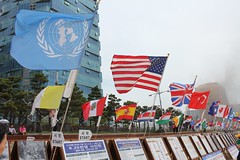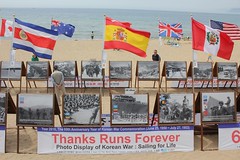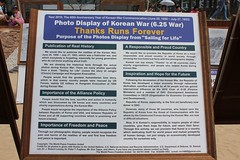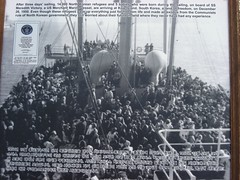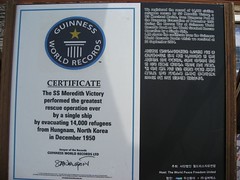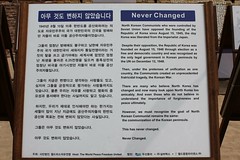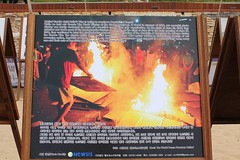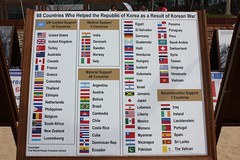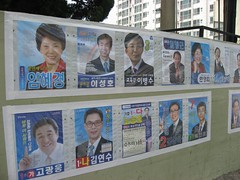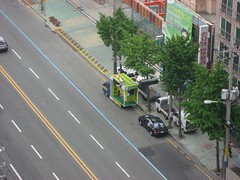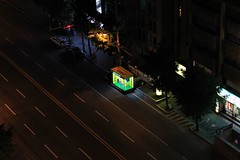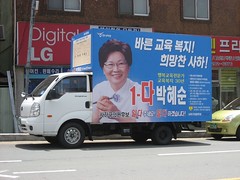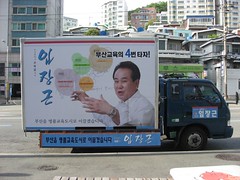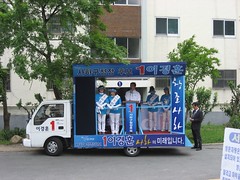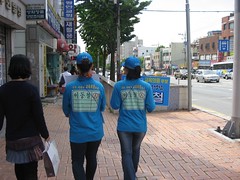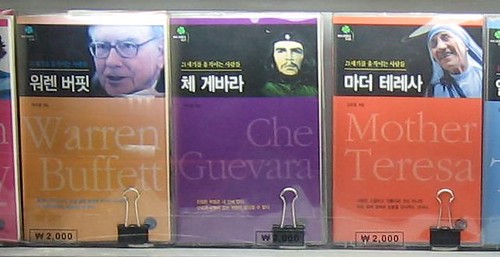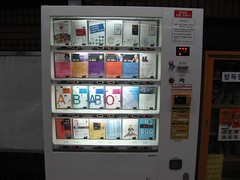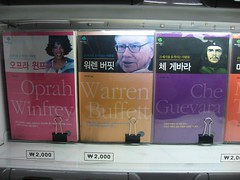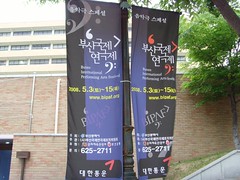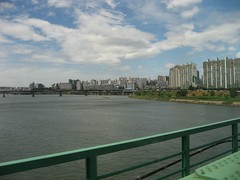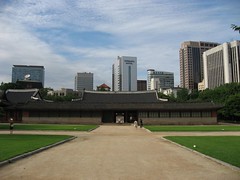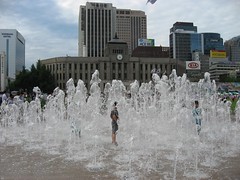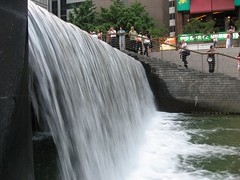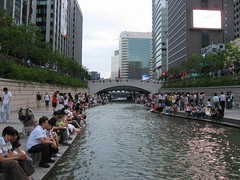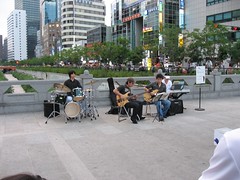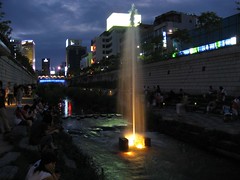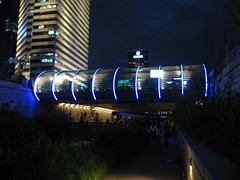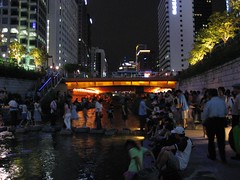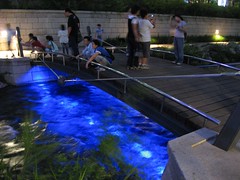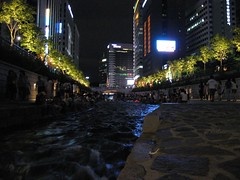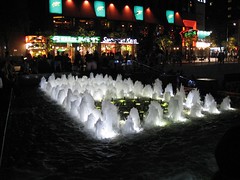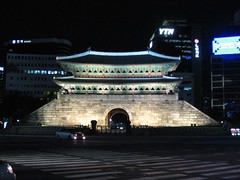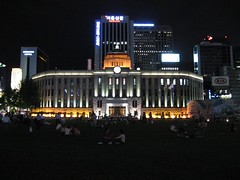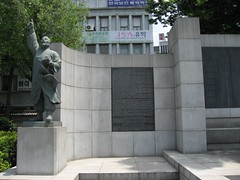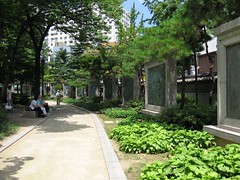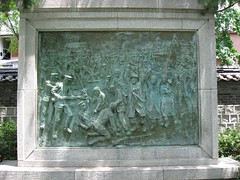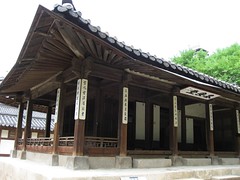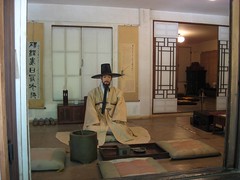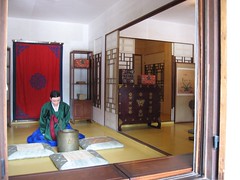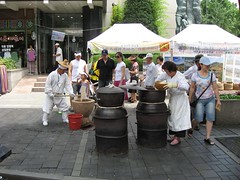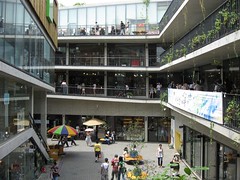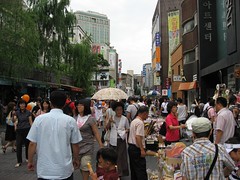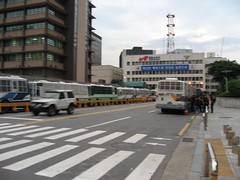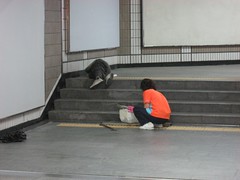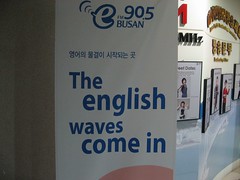 About 'Open Mike in Busan'
About 'Open Mike in Busan'Introduction
It took 36 weeks, but I finally had a script refused for broadcast. When I started doing my weekly segment with Busan e-FM, it was with the agreement that I could be honest about my experiences in Korea, but the question is, does Korea want to be honest about itself?
Ostensibly, the problem was that Love Hotels and Adultery – the main thrust of my piece – were “not appropriate subjects” for the radio. TBS eFM – an equivalent English-language radio station in Seoul had covered these subjects before – but that’s Seoul and this is Busan, which is generally much more socially conservative.
Exploring where these newly discovered boundaries lay, and whether they were strictly sexual, I asked - mindful that the 2011 Dog Meat Festival in Gyeonggi Province had recently been cancelled amidst protests – if the subject I was allegedly considering for the next week – that of dog meat in Korea – would be acceptable. I was of course, just screwing with them. I felt I saw a slightly pained look cross the face of my assigned handler. It was not really an acceptable subject either.
And so it was we reached the climax of our conversation. It was probably best to avoid ‘controversial subjects’. That was the spot I’d touched. The two people I knew that regularly listened to my segment – who for all I know were actually the only two people who listened at all - were surprised. Hadn’t the radio station really been listening to what I’d been talking about before now?
I’ve always found the foreigners who only tell Koreans what they want to hear for the sake of a quiet life somewhat soda-masochistic, even if we’ve all done it from time to time. So I escaped my temporary bondage and continued tackling controversial subjects in the weeks that followed, going on to reference attitudes to homosexuality in Korea, monoculture and corporate enslavement, racism and the often enforced dystopian existence of foreigners, consumer nationalism, chaebol media lies and the absence of critical thought, [stay tuned!] but I did it in my usual style – hopefully relatively gently, diplomatically, and with humour.
I’d like to think that if done sufficiently eloquently, it is possible to speak truth to power in Korea, but whether that’s because people here are truly prepared to have a light shone on certain subjects, or simply because they weren’t listening or didn’t understand, is the loaded question.
I include the script below as an example of the realities of Korean life and culture you can’t talk about on the radio in Busan in 2011.
Introduction – Love Hotels, Sex and AdulteryLast week I talked about ‘bangs’ - such as the ‘DVD bang’ couples go to. This week I’m talking about a related subject, that of ‘love hotels’ or ‘love motels’. I don’t quite know how to translate this because we don’t use the word ‘motel’ in British English, but I’ve seen them called both hotels and motels here.
I think this highlights an issue with the cultural development of language. A motel is described as a ‘hotel for motorists’, and it makes sense this word would emerge from American English because of the long road journeys people have to make in the United States. They don’t have to do this in England because the country is geographically small – so you can normally get to where you want to go in a day. But I understand that many American motels are dropping the word now because it’s seen as being ‘seedy’.
We still have slightly seedy hotels in England – we just call them ‘bed & breakfasts’. But there are no love hotels in England that I'm aware of.
Love HotelsSo I was surprised when I saw the love hotels here, although not totally shocked – Japan is famous for its love hotels and most people outside Japan have probably heard of them. To a Westerner like myself, there seem to be a lot of general cultural similarities between Japan and Korea, so it’s not a complete shock to discover love hotels here, but as I’ve said before, I really didn’t know that much about Korea before coming here, and I certainly didn’t realise how popular they are.
I took them as a sign of social restriction in Korea, in the same way that ‘DVD bang’ represent the same issue. They are both somewhere to go because so many young people live at home. Maybe ‘DVD bang’ are where they go to fool around, and when it gets more serious they graduate to love hotels. I find it funny though how people going there want privacy, but the buildings are usually so very visible and obvious because of their architectural tendency to employ large fake Roman columns, cupid statues, small windows and plenty of neon lighting.
Staying in a Love HotelI’ve actually stayed in a love hotel. The first time I went to Seoul it was just for an overnight trip, and my wife and I wanted to save money, so she said “love hotels are cheap... and usually have Internet connections.” I thought ‘why not?’ Anyway, if the word ‘cheap’ didn’t sell it for me, the word ‘Internet’ certainly did.
So we quickly came across a love hotel in some Seoul backstreet near the Blue House, although I’ve learned that in Korea love hotels certainly don’t feel compelled to hide themselves away. That said, they do try to maintain a certain air of privacy, with curtains at the entrance to the drive-in areas to avoid cars and perhaps car licence-plates being seen, which always gave me the impression that a lot of older people might be using the hotels given that younger people generally own fewer cars – and probably don’t care about that kind of privacy as much. This quickly led me to believe that love hotels are frequently the venue for affairs in Korea. But if that didn’t convince me, when we reached the counter it also had a curtain over it, our money went underneath and a hand comes back with a key. No faces are visible and it’s all quite seedy actually, which made me feel vaguely guilty. I felt like trying to look underneath the curtain to say “we’re married”, but then I suppose everyone feeling guilty says that.
Last week I talked about going to DVD bangs with two Korean women, which in retrospect – given the area we were in – looked bad. And in some ways I felt the same way at the love hotel – if the staff had seen my face it wasn’t going to do anything positive for the reputation of foreigners. Then again, love hotels don’t always do much with foreigners for the reputation of the Koreans who run them – last year there wasn’t enough hotel space at the inaugural Korean Grand Prix, so a number of journalists ended up staying in love hotels – perhaps unsuspectingly. Anyway, the main point it that they were charged $310 per night – in other words they were ripped off – which means that evidently the love hotel owners realised they were foreigners early into the transaction – curtains or not.
While it might be cheap – unless you happen to be an unsuspecting foreigner – it’s not necessarily easy to get a good night’s rest there, because my wife was worried about hidden cameras. I don’t know if this is just an urban legend or whether it actually happens – actually I suspect it probably does happen sometimes. So it’s all about undressing in a part of the room where you think the camera won’t see you, then hiding under the covers and sleeping. I don’t want to be famous on the Korean Internet.
So I guess the love hotels are still too much of a risk for some. I was up on Hwangryeong Mountain late one night in Busan taking shots of the city after dark, and there were a few cars parked along the road, spaced apart. There seemed to be some kind of activity in a couple of the cars, and one of them had the stereotypical steamed up windows, and the car was moving around. Given the executive and old fashioned nature of the car concerned, I imagined there had to be an older couple inside.
Adultery is a Criminal Offence in KoreaOf course, adultery is illegal in Korea, so people have to be careful. I was really shocked when I found out about this law, but perhaps it goes some way to explain some of the behaviour I’ve encountered. When my wife and I were at another love hotel, another couple happened to come out of the room at the same time as us, and as soon as they saw us they dashed back inside.
I don’t know what to think about the adultery law. On the one hand, adultery is a bad thing, but on the other hand, in my opinion it seems like the kind of law the Taliban would have, and not something you find in a modern country.
I think the law creates a bad impression of South Korea. Maybe it’s not fair expecting Korea to be socially liberal, but this country is very keen to attract foreign investment and foreign companies, but I imagine business executives in foreign companies look at Korean society as a whole before they decide to come here and think “what kind of country is this?”
What I can’t figure out about this law is that legislators are mainly men, and men are usually willing adulterers – in fact male politicians around the world are known for their affairs – so why did these men create and pass this law? Do they like living dangerously or were they really worried about their lives? [I left this question hanging but I’m convinced that men passed this law to control women in the traditionally misogynistic Korean court system, although more recently judges may have been a little more balanced in their judgements].
It’s also worth making some comparisons between South Korea and other countries. China is not known for being socially liberal, but adultery isn’t a criminal offence there. But then adultery is a criminal offence in the U.S. state of New Hampshire – it isn’t enforced and there are people trying to get it removed from the statute books.
I think the whole issue raises some fundamental questions about freedom and democracy in South Korea. Should the majority be able to dictate to – and criminalise – a minority that don’t meet their moral standards? For that matter, what right does the government have to legislate people’s sex lives?
It’s a dangerous road to go down in my opinion. Some Islamic countries have ‘moral police’ who enforce compliance with Sharia Law – is that really what the police should be doing in Korea? Last year, I read about an incident in Malaysia where the ‘morality police’ were knocking on people’s doors in a hotel, and they ended up arresting 52 unmarried couples. I suppose if the Korean police really wanted to enforce the law here they could just visit love hotels, check people’s marital status, and make arrests. To be fair, they don’t, but the fact that the law exists means that one day they could, or just choose to do it selectively to target certain individuals or groups, which is why bad laws should never be on the statute books. Anyway, as far as Korea is concerned, I think the people should be spending their time arresting motorcyclists who ride on the pavements [sidewalks], rather than getting involved in policing people’s relationships.
Korean Porn MoviesWhile I don’t worry about getting arrested in a love hotel, I do worry about the perceived issue of hidden cameras and ending up on the Internet, but I haven’t avoided Korea’s love hotels despite this. When we went to a funeral in Namhae we found ourselves in the countryside and it was quite isolated. As you can imagine, there wasn’t a proper hotel for miles, but there was a love hotel just up the road from the the funeral hall. So given that Korean funerals tend to be multi-day events, and given that we didn’t want to sleep in the funeral hall with a heaving mass of older Koreans, we had little choice but to stay in a love hotel once again.
This one was even less subtle because even if the building's fake Roman columns and cupid statues didn’t give the game away to the uninitiated, it had a large collection of pornographic videos outside the elevator on our floor - most appeared to be Korean-made. It also had a great looking Jacuzzi placed centrally within the room, but sadly we daren’t use it because of the potential for hidden cameras.
Korean CultureStaying in a love hotel is an interesting experience. When it comes down to it, staying in hotels in England is often all the same, but Korean love hotels have character. At the risk of giving Korean newspapers even more reasons to hate us, I think it’s something every foreigner should try at least once. They are part of what Korea is, and part of the cultural experience here.
Planned air date: 2011-06-29 @ ~19:30
Footnote
Five weeks after the planned air date of this piece, South Korea's Constitutional Court overturned the provision in the Criminal Code imposing a maximum two-year prison sentence on adulterers, saying it was 'an infringement on the sphere of sexual life that society should maintain on its own' and that 'the state was excessively restricting a matter of personal decision.'

